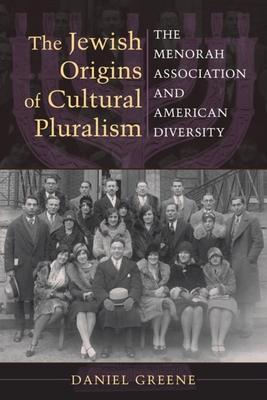Daniel Greene traces the emergence of the idea of cultural pluralism to the lived experiences of a group of Jewish college students and public intellectuals, including the philosopher Horace M. Kallen. These young Jews faced particular challenges as they sought to integrate themselves into the American academy and literary world of the early 20th century. At Harvard University, they founded an influential student organization known as the Menorah Association in 1906 and later the Menorah Journal, which became a leading voice of Jewish public opinion in the 1920s. In response to the idea that the American melting pot would erase all cultural differences, the Menorah Association advocated a pluralist America that would accommodate a thriving Jewish culture while bringing Jewishness into mainstream American life.

The Jewish Origins of Cultural Pluralism: The Menorah Association and American Diversity
Daniel Greene traces the emergence of the idea of cultural pluralism to the lived experiences of a group of Jewish college students and public intellectuals, including the philosopher Horace M. Kallen. These young Jews faced particular challenges as they sought to integrate themselves into the American academy and literary world of the early 20th century. At Harvard University, they founded an influential student organization known as the Menorah Association in 1906 and later the Menorah Journal, which became a leading voice of Jewish public opinion in the 1920s. In response to the idea that the American melting pot would erase all cultural differences, the Menorah Association advocated a pluralist America that would accommodate a thriving Jewish culture while bringing Jewishness into mainstream American life.